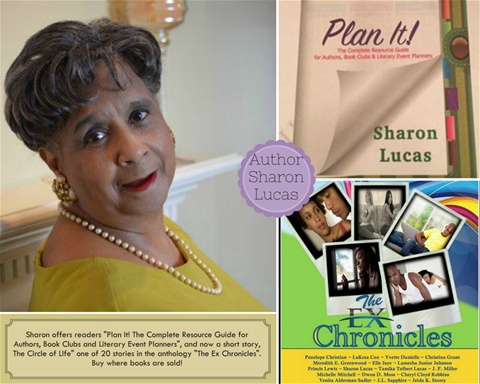Updating "Plan It!" (Just a little)
April 22, 2016
Since October 2015 when “Plan It! The Complete
Resource Guide for Authors, Book Clubs and Literary Event Planners” was released, I’ve thought a thousand times about points I didn’t touch on. Even though I am confident more was covered in “Plan It!” than in any
other remotely similar book, there is still much to be said.
“Plan It!” was written from the perspective of an avid reader, book club president and event planner. If I were to write this book today, I would take away nothing but would certainly add my perspectives as an author and book club consultant.
Book Clubs
- Should invest time in building relationships with the authors they support and vice versa.
- Book club members, especially those in the African American (AA) community, who do not attend or support literary events frequented by AA writers are missing a tremendous opportunity to network with and support the often underrated AA author.
- If I were starting a book club today I would do my best to recruit members who love to read. Though there are exceptions to every rule, it’s often quite draining to attempt to mold a non-reading social butterfly into a serious reader.
- It should be a condition of membership that every book club member attend at least one literary event each year.
- It is never too late to create club by-laws. Once bylaws are adopted, all members should be required to comply.
- Too often I hear from book club members who have left their club or allowed the club to die a slow death rather than confront the problems associated with members who don’t read the book, come only to eat or socialize or who constantly start or keep “drama” going. “When terminations are necessary” should be included in the by-laws.
Authors
- You must brand yourself and to successfully
do that, it is best to work with a budget so you are aware of how much you can spend on:
- Promotional and give away materials
- Travel and registration for Conferences, festivals and other literary events
- Classes, courses, workshops, etc., that will help you master your craft.
- Professionally prepared materials such as bookmarks, brochures, and business cards.
- A website to promote both you and your work.
- Be prepared - Have headshots taken and write a bio BEFORE your book is released so that when you are asked, you
are ready to share:
- Prepare a two or three sentence blurb to be used on promotional materials.
- Prepare a two or three short paragraph bio that can be used in your media kit and on event programs.
- Prepare a longer all-inclusive bio that can be used when necessary.
- When you agree to participate in an event:
- Be timely when the event planner requests information.
- Do not send a long bio when a short bio is requested. Event planners are often dealing with dozens of authors – they do not have time to read your long bio and extract information and then write your short bio.
- Headshots should be sent as a separate attachment. A flyer or page from your website with your picture on it requires additional work for the planner.
- Promote the event – add it your newsletter, calendar, etc., and plug it on social media every chance you get.
- Sell yourself:
- Write and practice the one-minute or elevator speech you will use to tell people who you are and what you have to offer.
- Choose a passage from your book that you can share with an audience; keep it very brief – a paragraph or two not a chapter or two. Unless you are the keynote speaker, comments should be kept to two or three minutes. Glance at the audience to be sure you have and are keeping their undivided attention.
- Prepare an “Exhibit in a Box” that has everything needed to set up your table – tablecloth, book stands, easels, banners, flyers, tape, scissors, pens, and booklet or paper to capture names for your email list, etc. That box should be packed and ready at all times – when you come back from one event, immediately replenish your box so that it’s ready for the next event.
- Don’t use “rote” answers when giving interviews – whether the interview is written or oral – vary your answers from interview to interview to keep the audience entertained and coming back for more.
Event Planners
- When negotiating with exhibitors - deal with them or their representative DIRECTLY.
- Do not allow a disinterested "well-intentioned" person to broker any deals for you. Doing so often leads to misunderstandings.
- Though imitation is considered by many to be the highest form of flattery, develop a flair of your own and be original even when you follow a general or accepted format.
Everyone
- Use the words "thank you" often and be gracious, even when you’re saying No!
